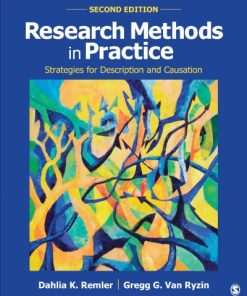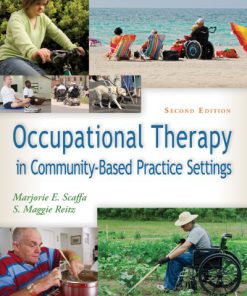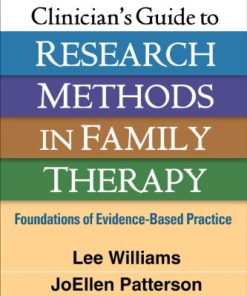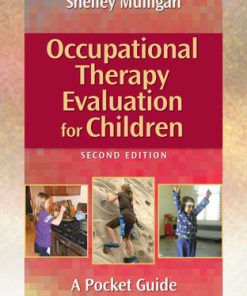Kielhofner’s Research in Occupational Therapy Methods of Inquiry for Enhancing Practice 2nd Edition – Ebook PDF Version
$50.00 Original price was: $50.00.$25.00Current price is: $25.00.
Kielhofner’s Research in Occupational Therapy Methods of Inquiry for Enhancing Practice 2nd Edition – Ebook PDF Version – Digital Instant Dowload.
Kielhofner’s Research in Occupational Therapy Methods of Inquiry for Enhancing Practice 2nd Edition – Ebook PDF Version – Digital Instant Dowload.

Product details:
- ISBN-10 : 0803640374
- ISBN-13 : 978-0803640375
- Author: Renee R. Taylor
With an international team of expert contributors, Renee Taylor carries on Gary Kielhofner’s innovative work in the 2nd Edition of his comprehensive research methodologies text.
This guide bridges the gap between theorists and practitioners. It focuses on the relevance and logic of research to provide a practical, demystified approach to conducting applied research in the field for graduate students and clinicians.
You’ll begin with an introduction to the nature and scope of research and its place in OT and then explore research designs, measurements, and statistical analysis for qualitative, quantitative, and mixed studies. You’ll examine the steps and procedures required to conduct research and how research can be used to shape professional practice and improve patient care.
Table of contents:
I. Research in Occupational Therapy: Basic Elements for Enhancing Practice
1. Occupational Therapy: An Evidence-Based Practice Profession
2. Classifications and Aims of Research
3. Philosophical Foundations of Research
4. Reading and Understanding Published and Presented Research
5. Critically Appraising and Classifying Published and Presented Research
6. Managing Barriers to Evidence-Based Practice: An International Imperative
7. Professional Responsibility and Roles in Research
8. The Role of Theory in Occupational Therapy
II. Laying the Groundwork for Evidence-Based Practice: The Steps of the Research Process
9. Steps in the Research Process and Characteristics of Sound Research
10. Conducting a Literature Review
11. Generating Research Questions and Defining Specific Aims and Hypotheses
12. Selecting the Research Method
13. Writing the Research Proposal
14. Ensuring Ethical Research
15. Securing Samples and Performance Sites
III. Qualitative Approaches: First Steps in Communicating with Language
16. Design Considerations in Qualitative Research
17. Collecting Qualitative Data
18. Contemporary Tools for Managing and Analyzing Qualitative Data
19. Qualitative Approaches to Interpreting and Reporting Data
IV. Quantitative Approaches: First Steps in Communicating with Statistics and Measures
20. Quantitative Research Designs: Defining Variables and Their Relationships with One Another
21. Developing and Evaluating Quantitative Data Collection Instruments
22. Collecting Quantitative Data
23. Entering, Storing, and Managing Data
24. Deciding on an Approach to Data Analysis
25. Meta-Analysis
V. Descriptive, Exploratory, and Pilot-Study Research
26. Single Subject Research
27. Survey Research
VI. Additional Topics for the Developing Investigator
28. Needs Assessment Research
29. Program Evaluation Research
30. Participatory Research Approaches
31. Writing a Literature Review
32. Disseminating Research: Presenting, Writing, and Publishing
33. Writing a Grant Proposal
34. Using Mixed Methods Designs to Study Therapy and Its Outcomes
35. Creating Outcomes Research for Evidence-Based Practice
Glossary
Title Tag:
Kielhofner’s Research in Occupational Therapy – Enhancing Practice Methods
Methods of Inquiry in OT: Kielhofner’s Guide to Advanced Practice Research
Kielhofner’s Occupational Therapy Research Methods – Second Edition
You may also like…
Uncategorized
Uncategorized
Research Methods in Practice: Strategies for Description and Causation – Ebook PDF Version
Uncategorized
Conditions in Occupational Therapy: Effect on Occupational Performance 5th Edition, (Ebook PDF)
Uncategorized












